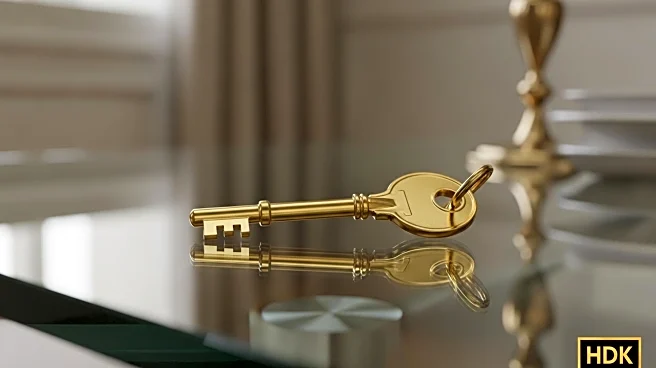What's Happening?
Steve Witkoff, serving as President Trump's envoy to the Middle East, has been involved in ceasefire negotiations between Israel and Hamas. Concurrently, his sons, Alex and Zach Witkoff, have been seeking investment from Gulf nations for their business ventures. Alex Witkoff pitched a multibillion-dollar real estate fund to Gulf nations, including Qatar, while Zach Witkoff pursued investors for a cryptocurrency venture linked to both the Witkoff and Trump families. The real estate fund aimed to address affordable housing shortages in the U.S. and was projected to generate significant management fees. Despite initial interest, the proposal was ultimately declined by Qatar's sovereign fund, although Alex continued to seek other Gulf investors. The timing of these business efforts has raised questions about potential conflicts of interest due to Steve Witkoff's diplomatic role.
Why It's Important?
The Witkoff family's business activities during sensitive diplomatic negotiations highlight potential ethical concerns regarding the intersection of business and politics. The involvement of Gulf nations in these ventures, particularly Qatar, underscores the geopolitical complexities and influence dynamics at play. The situation raises questions about the propriety of leveraging political connections for business gains, especially when diplomatic roles are involved. This could impact public perception of the Trump administration's foreign policy and its approach to business ethics. The scrutiny may also affect future business dealings and diplomatic engagements involving the Witkoff family and similar entities.
What's Next?
The Witkoff Group has stated that plans for the real estate fund were abandoned for economic reasons, denying media influence. Steve Witkoff is finalizing his divestment from the company to comply with government ethics rules. The family continues to emphasize the ethical nature of their business decisions. However, ongoing media scrutiny and public interest may lead to further investigations or policy discussions regarding the ethical boundaries of business and diplomacy. Stakeholders, including political leaders and business entities, may react by reassessing their strategies and relationships in similar contexts.
Beyond the Headlines
The Witkoff family's long-standing ties to Qatar, dating back to Trump's first term, illustrate the intricate web of relationships between business interests and political influence. The involvement of a Qatari state-backed investment firm in Witkoff properties highlights the strategic economic partnerships that can arise from diplomatic engagements. This situation may prompt broader discussions on the ethical implications of such partnerships and the need for transparency in business dealings involving political figures. The cultural and legal dimensions of these interactions could lead to calls for stricter regulations and oversight.









